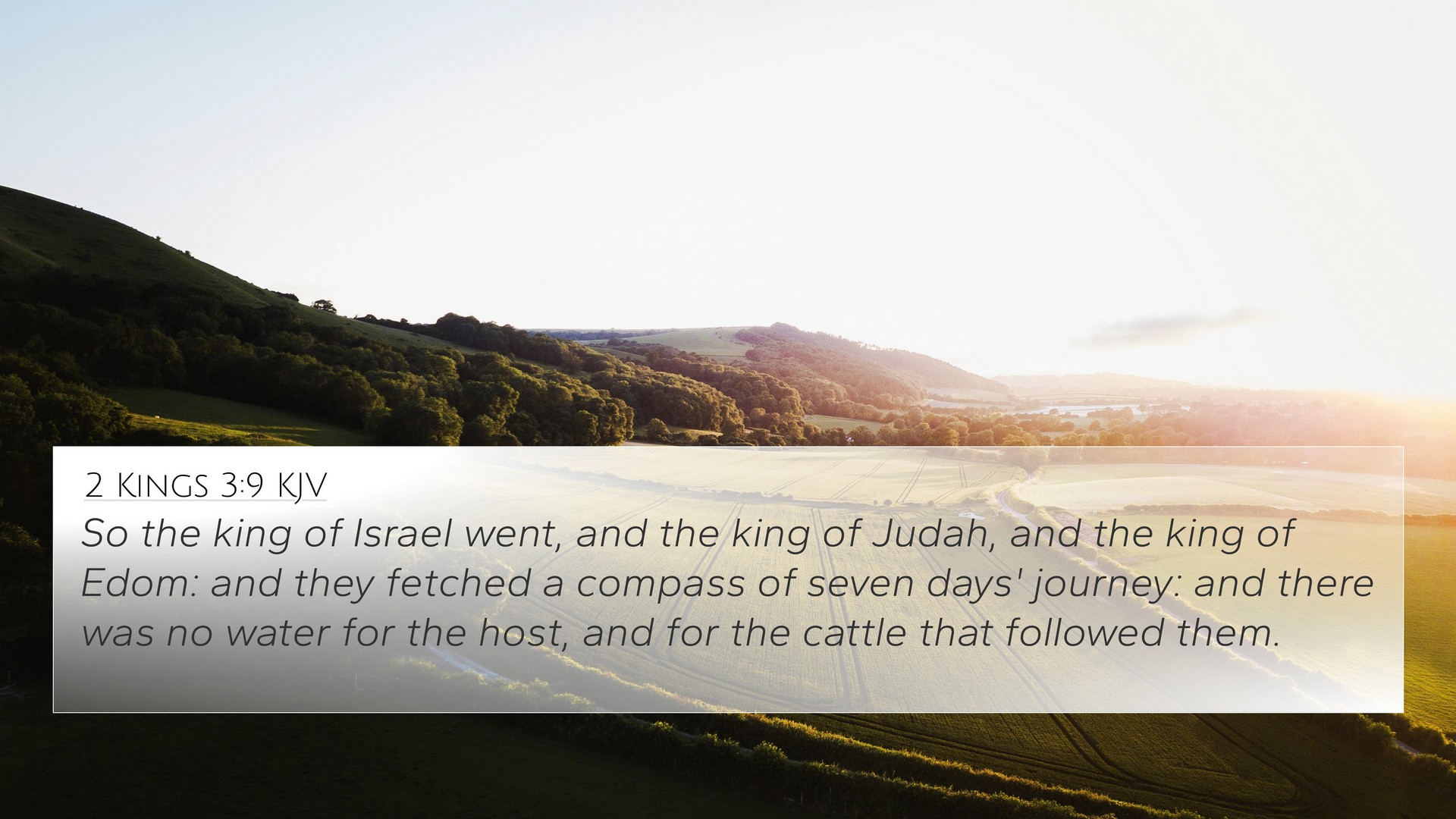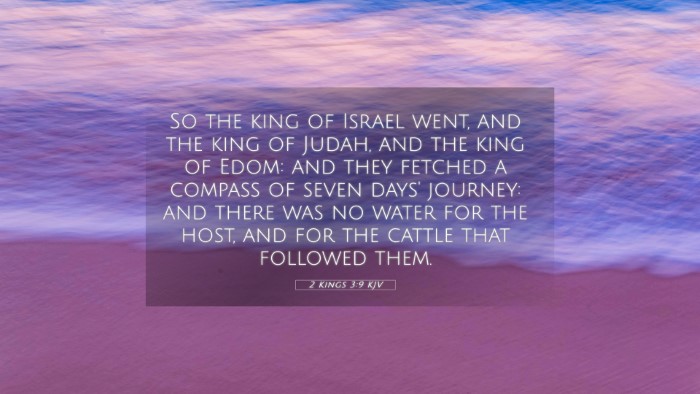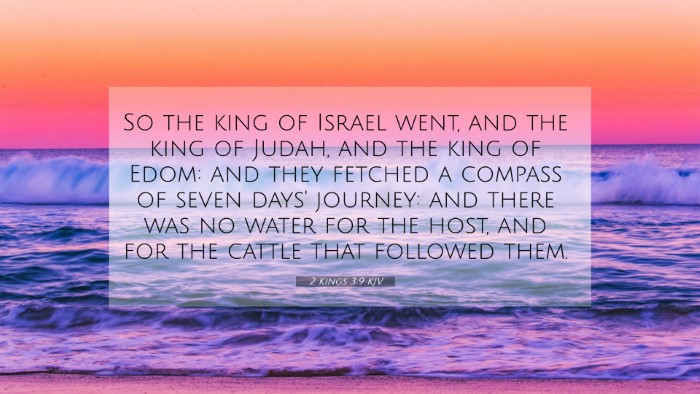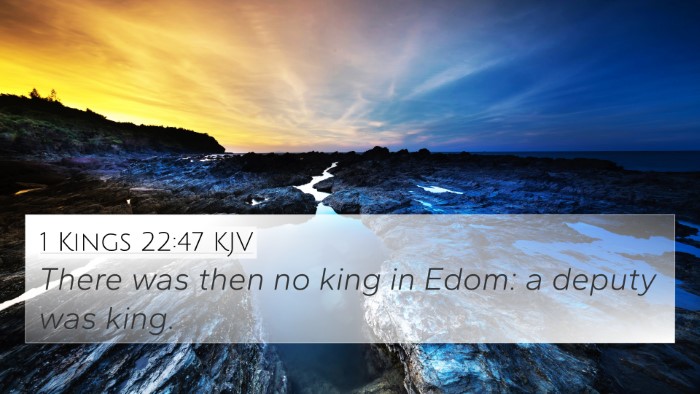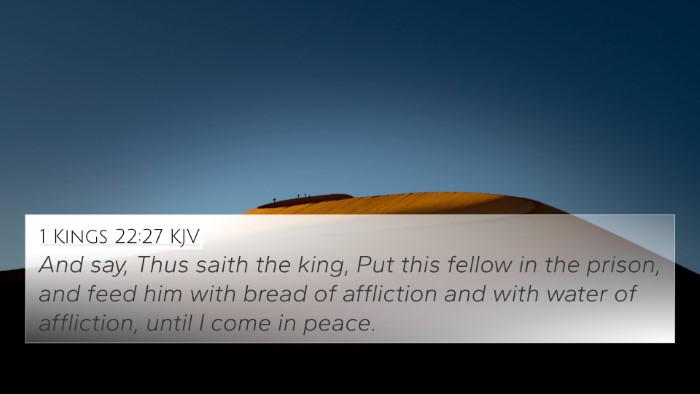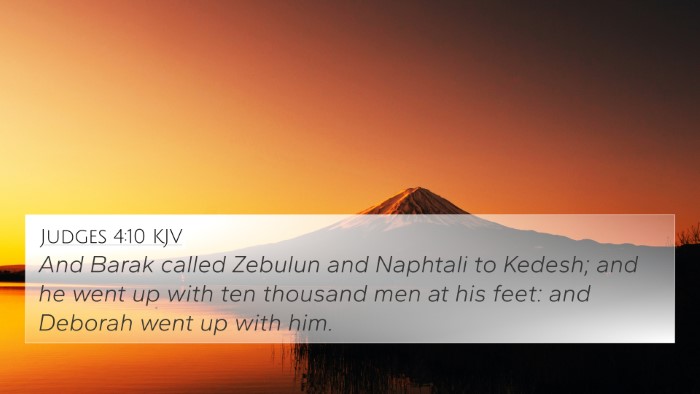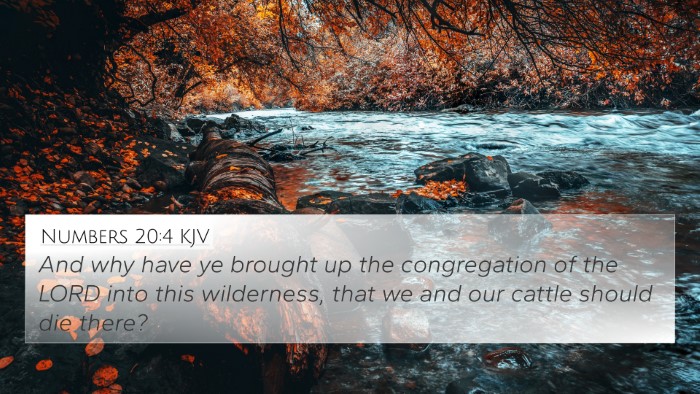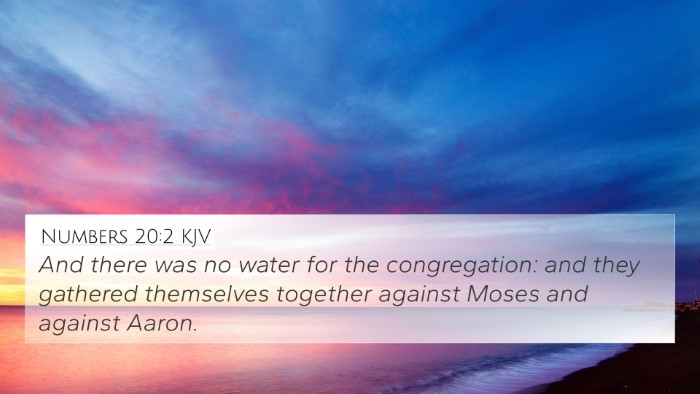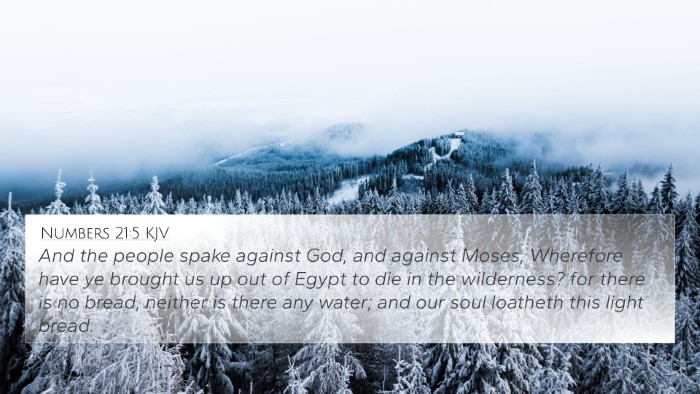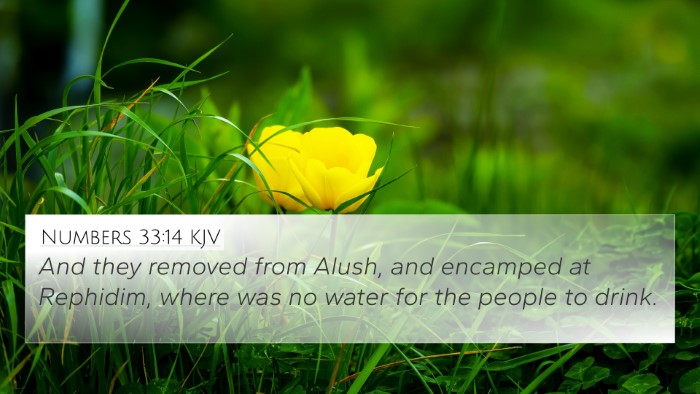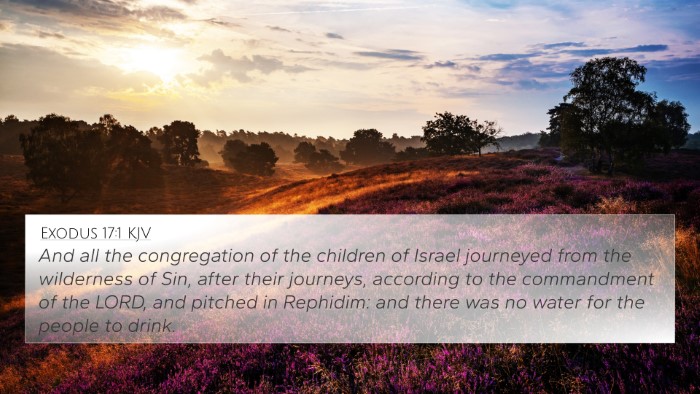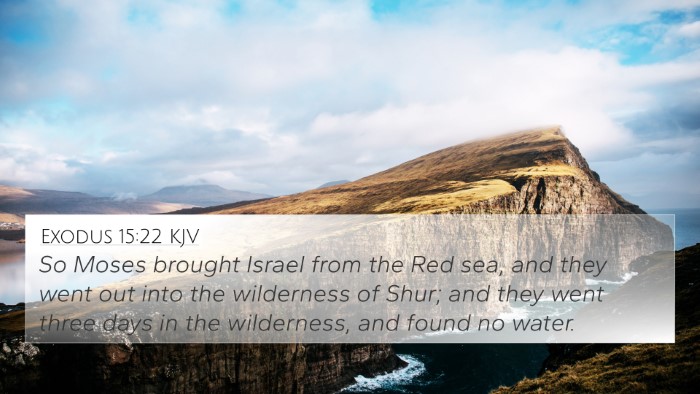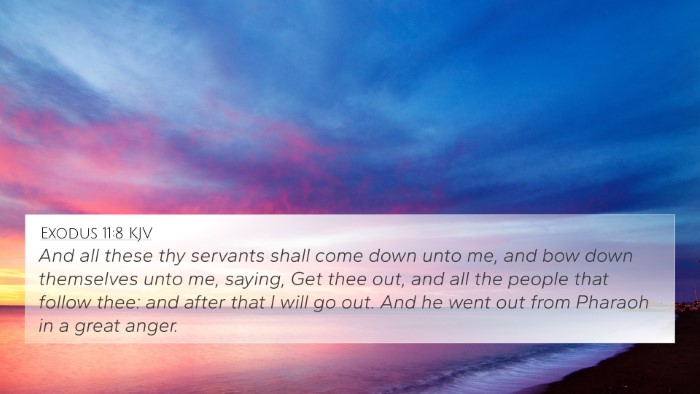Understanding 2 Kings 3:9
In 2 Kings 3:9, we see a significant moment where the three kings, Jehoram of Israel, Jehoshaphat of Judah, and the king of Edom, embark on a joint military expedition. The verse states: "So the king of Israel went with the king of Judah and the king of Edom; and they fetched a compass of seven days' journey: and there was no water for the host, and for the cattle that followed them."
This verse encapsulates several key themes and events that reflect the broader narrative in the scriptures:
- The Alliance of Kings: The kings unite for a common cause, symbolizing unity despite their various backgrounds and challenges. This reflects how different groups may come together for a common goal, which can be seen in Ecclesiastes 4:9-10, where it emphasizes the importance of companionship.
- The Journey into Adversity: Their journey underlines the struggles and adversities faced in pursuit of victory. Much like Matthew 11:28, where Jesus invites the weary to find rest in Him, the kings indeed faced burdens that made them weary.
- The Absence of Water: The lack of water symbolizes desperation and the need for divine intervention, akin to Psalms 42:1-2, which expresses a deep thirst for God akin to how a deer longs for water.
- Lessons on Leadership: The contemplation about how each king handled crisis can be reflected upon, similar to 1 Peter 5:2, which speaks to shepherding the flock willingly and eagerly.
- Human Limitations and Divine Help: Their plight points to the limitations of human resources, drawing on Matthew 19:26 where Jesus commented that with man this is impossible, but with God all things are possible.
- Seeking Divine Guidance: The kings ultimately realize their need to seek the prophet Elisha for guidance, echoing James 1:5, where believers are encouraged to seek wisdom from God.
- Endurance through Hardships: Their experience reflects the need for endurance, much like in Romans 5:3-4, where we are reminded that tribulation brings about perseverance.
- Importance of Water: Water signifies life and sustenance, paralleling John 7:37-38, where Jesus speaks of the living water that brings eternal life.
- Divine Intervention: The kings’ plight ultimately leads them to seek God's help, which correlates with Philippians 4:6-7, urging believers not to be anxious but to present their requests to God.
- The Role of Prophets: This moment highlights the necessity of prophetic voices in times of crisis, akin to Amos 3:7 which states that the Lord does nothing without revealing His secret to His servants the prophets.
Overall, 2 Kings 3:9 serves not only as a historical account but also as a source of spiritual instruction, demonstrating themes of cooperation in adversity, human limitations, the thirst for divine sustenance, and the ultimate necessity of seeking God's guidance in challenging times.
Cross-Referencing Related Bible Verses:
- 1 Kings 22:4 - The alliance of Israel and Judah in battle.
- 2 Chronicles 20:20 - Trusting in the LORD for victory.
- Exodus 17:1-7 - Israel's thirst in the wilderness.
- Psalms 63:1 - Yearning for God in a dry land.
- Proverbs 3:5-6 - Trusting and acknowledging God in all ways.
- Isaiah 41:10 - Encouragement in times of fear.
- Luke 18:1 - The parable of perseverance in prayer.
- John 4:14 - Living water provided by Christ.
- Romans 15:4 - Learning from the Scriptures for endurance.
- Ephesians 6:18 - Constant prayer in all circumstances.
Moreover, understanding the connections between these verses enhances our comprehension of the text and its application to our lives today. This is key in Bible verse cross-referencing and enables us to see the thematic Bible verse connections throughout Scripture.
